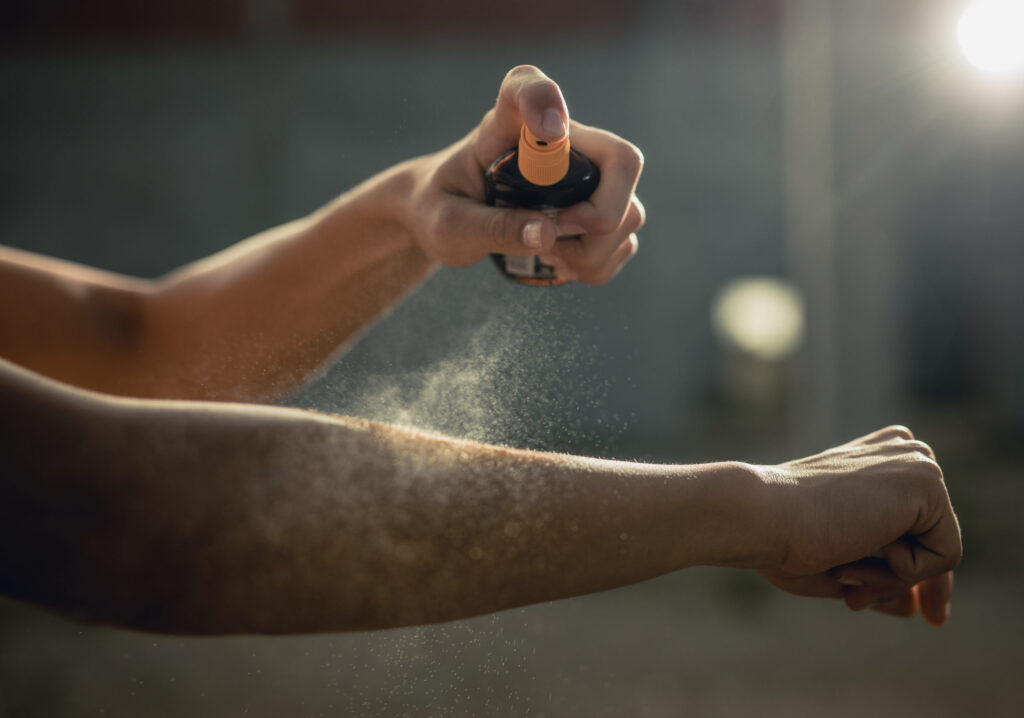Mechanics, boilermakers, offshore oil workers, and individuals in refinery and petrochemical plants have been exposed to benzene for decades. Hughes Law Offices has been representing these individuals in lawsuits against the manufacturers of benzene-containing products for years. The developing litigation against the consumer product manufacturers is novel. We are now learning that the American consumer was needlessly exposed to benzene through everyday products like sunscreen, hand sanitizer, antifungal foot sprays, and antiperspirant and deodorant body sprays.
Why Is Benzene In These Consumer Products?
Initially, experts were unsure how benzene got into sunscreens. All of the sunscreens that tested positive for benzene were the spray or aerosol type. But not all spray sunscreens that were tested contained benzene. Consumers have been struggling to understand which brands of sunscreen they could use safely. Then they had to worry about foot sprays and now deodorant sprays. The levels of benzene in these products were not high in comparison to solvents and degreasers where benzene is normally found. However, we do not use industrial solvents and degreasers on our children or in our bathrooms. Moreover, there is no safe level of benzene exposure. Brand loyal customers using benzene-containing consumer products on a daily basis could be at elevated risk for leukemia.

What Products Exceed FDA Benzene Limits
On Oct 1, 2021Bayer, the international pharmaceutical company announced a recall of Tinactin and Lotrimin sprays. The affected products are:
- Lotrimin Anti-Fungal (AF) Athlete’s Foot Powder Spray
- Lotrimin Anti-Fungal Jock Itch (AFJI) Athlete’s Foot Powder Spray
- Lotrimin Anti-Fungal (AF) Athlete’s Foot Deodorant Powder Spray
- Lotrimin AF Athlete’s Foot Liquid Spray
- Lotrimin AF Athlete’s Foot Daily Prevention Deodorant Powder Spray
- Tinactin Jock Itch (JI) Powder Spray
- Tinactin Athlete’s Foot Deodorant Powder Spray
- Tinactin Athlete’s Foot Powder Spray
- Tinactin Athlete’s Foot Liquid Spray
Need Our Help? Contact Us Today!
Below is a list of the antiperspirants and deodorants tested by Valisure that exceeded the FDA limit of 2ppm benzene levels with the highest benzene levels listed first. Benzene was detected at up to 9 times higher than permitted by the FDA.:
- Old Spice Pure Sport Antiperspirant
- Secret Powder Fresh, 24 HR Aerosol Antiperspirant
- Tag Midnight, Fine Fragrance Body Spray, Long Lasting Scent Deodorant
- Sure Lasts All Day, Unscented, Aerosol Antiperspirant
- Equate Dry Spray, Cucumber Antiperspirant
- Old Spice Below Deck, Powder Spray, Feel Drier & Cleaner, Down Below, Fresh Air Deodorant
- Suave 24 Hour Protection, Powder, Aerosol Antiperspirant
- Right Guard Sport, Fresh, Up To 48 HR Odor Protection Antiperspirant
- Secret Cool Light & Airy Smooth Feel, Dry Spray, 48 Hour Freshness, Rose Antiperspirant
- Old Spice Sweat Defense, Stronger Swagger, Dry Spray, Sweat & Odor Protection Antiperspirant
- Brut Classic, 24 Hr Protection Antiperspirant
- Tag Sport Fearless, Fine, Fragrance Body Spray, Long Lasting Scent Deodorant
Valisure continues to test products for benzene. We can expect other products that utilized aerosols to be tested and recalled. The manufacturers of aerosol consumer products will also run their own tests and issue voluntary recalls. Unfortunately, when the manufacturers run internal testing, they do not release the results and claim that no one should be harmed from benzene at these relatively low levels. But benzene is carcinogenic and there is no safe level of benzene exposure. An important takeaway from both Valisure reports is that not all of the consumer products tested contained benzene. There are ways to manufacture these products without putting consumers at risk.
We Will Continue to Monitor The Issue
Aerosols were first patented in 1927 and were used without much thought or regulation until amendments to the Clean Air Act were passed in 1977 to address the harm that CFCs presented to the environment. CFCs were phased out by 1995 and aerosols were used as a replacement. We do not yet know when benzene was first present in consumer products. The manufacturers may be the only entities with that knowledge. Through the course of this litigation, the manufacturers will be forced to disclose what they know and when they knew it. If you or a loved one has been diagnosed with a blood or bone cancer such as AML, MDS, multiple myeloma (MM), or non-Hodgkin’s lymphoma (NHL), and regularly used aerosol consumer products, call 1-800-BENZENE and speak to a lawyer today.

